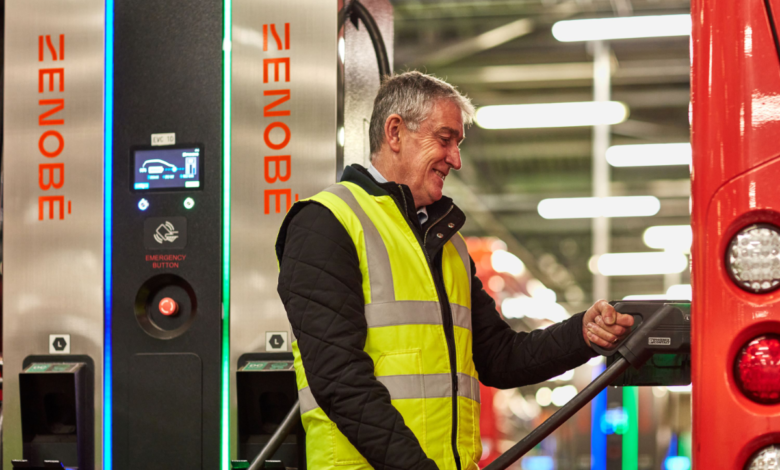Zenobē completes £410 million finance for bus electrification

Battery storage company Zenobē completed a £410 million ($521 million) finance deal to support the deployment of over 2,000 electric buses in the UK and Ireland by 2026.
The UK company offers bus fleet operators finance deals and a battery management and charging service that it says removes battery risk and hassle for operators.
It takes on the responsibility and risk associated with EV batteries, including battery performance, replacement and repurposing in second-life applications, from which bus companies also benefit financially.
It said it supports 75 bus depots around the world, including Transdev Blazefield’s Harrogate depot in England where it will finance 39 EVs, and offer a 15-year battery management service.
Earlier this year, Zenobē announced the financing of 24 batteries on board Nottingham City Transport’s newly acquired fleet of fully electric single decker buses.
The company’s debt financing is now over £1 billion ($1.3 billion) since 2019. It set up an EV financing platform in 2022 with £241 million ($306 million).
It has attracted big-name banks and financial institutions to support its EV financing syndicate, including Aviva, Lloyds, MUFG, NatWest, Santander, Scottish Widows, Siemens Financial Services through Siemens Bank and Société Générale.
The company has 735MW of battery storage projects in operation or under construction and supports over 1,200 electric vehicles.
Nicholas Beatty, founder and director of Zenobē, told BEST the company maintains the batteries for the bus companies, organises driver training to help companies get the most of out the batteries.
Most batteries are 400–450kW, which gives some 150 miles in range. The batteries are then recharged overnight. The Chinese batteries tend to be LFP while the Korean ones are usually sodium-based, he said. The batteries come with the buses.
The model is to integrate bus batteries into second life usage, he said: “One of the things that we do is when the battery comes to the end of its seven-year life on the vehicle, we’ve been putting it in, let’s say, a 10-foot container with a European inverter and then taking it out and using it.”
This mobile power has been provided at Glastonbury music festival to charge buses. Power on film sets have been another use, he said.
Source link




